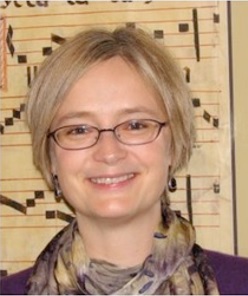
- This event has passed.
Chant, Identity, and Christian Formation in Early Medieval Iberia – Rebecca Maloy
September 6, 2019 @ 1:55 pm - 3:00 pm
Free This paper considers the role of liturgical chant–both texts and melodies—in the cultural renewal of early Medieval Iberia. Between the seventh and eleventh centuries, Christian worship on the Iberian Peninsula was structured by rituals of great theological and musical richness, known as the Old Hispanic (or Mozarabic) rite. Much of this liturgy was produced during the seventh century, as part of a cultural and educational program led Isidore of Seville and other bishops. After the conversion of the Visigothic rulers from Arian to Nicene Christianity at the end of the sixth century, the bishops aimed to create a society unified in the Nicene faith, built on twin pillars of church and kingdom. They initiated a project of clerical education, facilitated through a distinctive culture of textual production. The chant repertory was carefully designed to promote these aims. The creators of the chant texts reworked scripture in ways designed to teach biblical exegesis, linking both to the theological works of Isidore and others, and to Visigothic anti-Jewish discourse. The non-pitched notation of the chants reveals an intricate melodic grammar that is closely tied to textual syntax and sound. Through musical rhetoric, the melodies shaped the delivery of the texts to underline words and phrases images of particular liturgical or doctrinal import. The chants thus worked toward the formation of individual Christian souls and a communal, Nicene identity.
This paper considers the role of liturgical chant–both texts and melodies—in the cultural renewal of early Medieval Iberia. Between the seventh and eleventh centuries, Christian worship on the Iberian Peninsula was structured by rituals of great theological and musical richness, known as the Old Hispanic (or Mozarabic) rite. Much of this liturgy was produced during the seventh century, as part of a cultural and educational program led Isidore of Seville and other bishops. After the conversion of the Visigothic rulers from Arian to Nicene Christianity at the end of the sixth century, the bishops aimed to create a society unified in the Nicene faith, built on twin pillars of church and kingdom. They initiated a project of clerical education, facilitated through a distinctive culture of textual production. The chant repertory was carefully designed to promote these aims. The creators of the chant texts reworked scripture in ways designed to teach biblical exegesis, linking both to the theological works of Isidore and others, and to Visigothic anti-Jewish discourse. The non-pitched notation of the chants reveals an intricate melodic grammar that is closely tied to textual syntax and sound. Through musical rhetoric, the melodies shaped the delivery of the texts to underline words and phrases images of particular liturgical or doctrinal import. The chants thus worked toward the formation of individual Christian souls and a communal, Nicene identity.